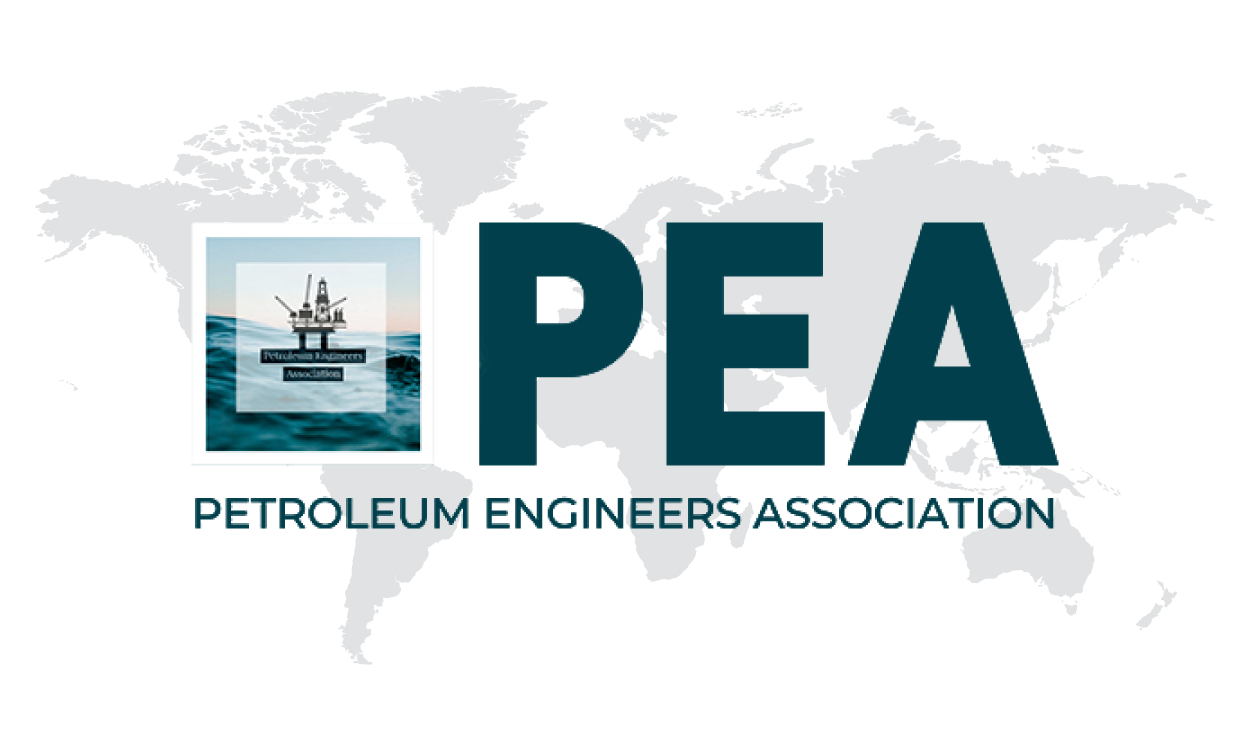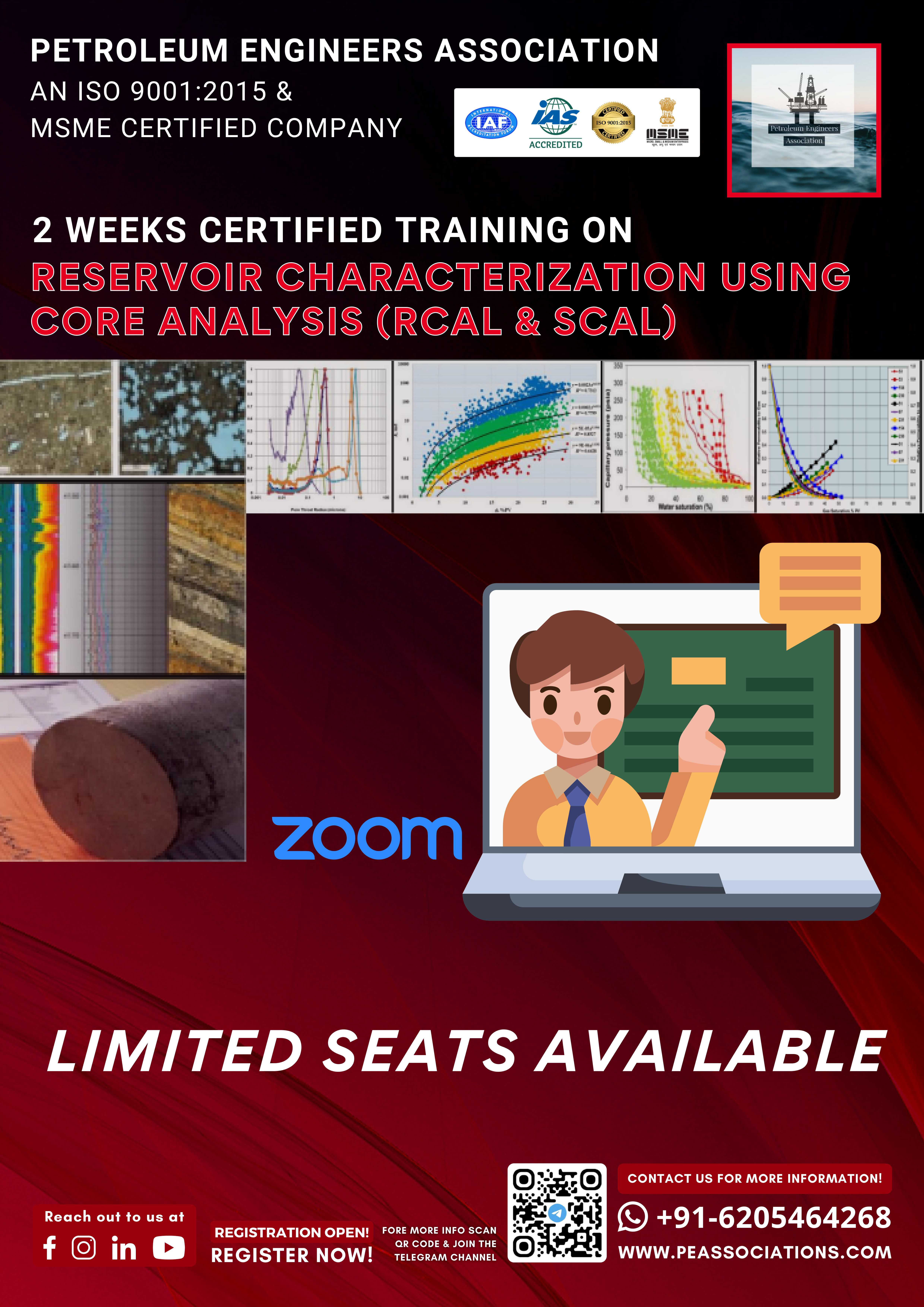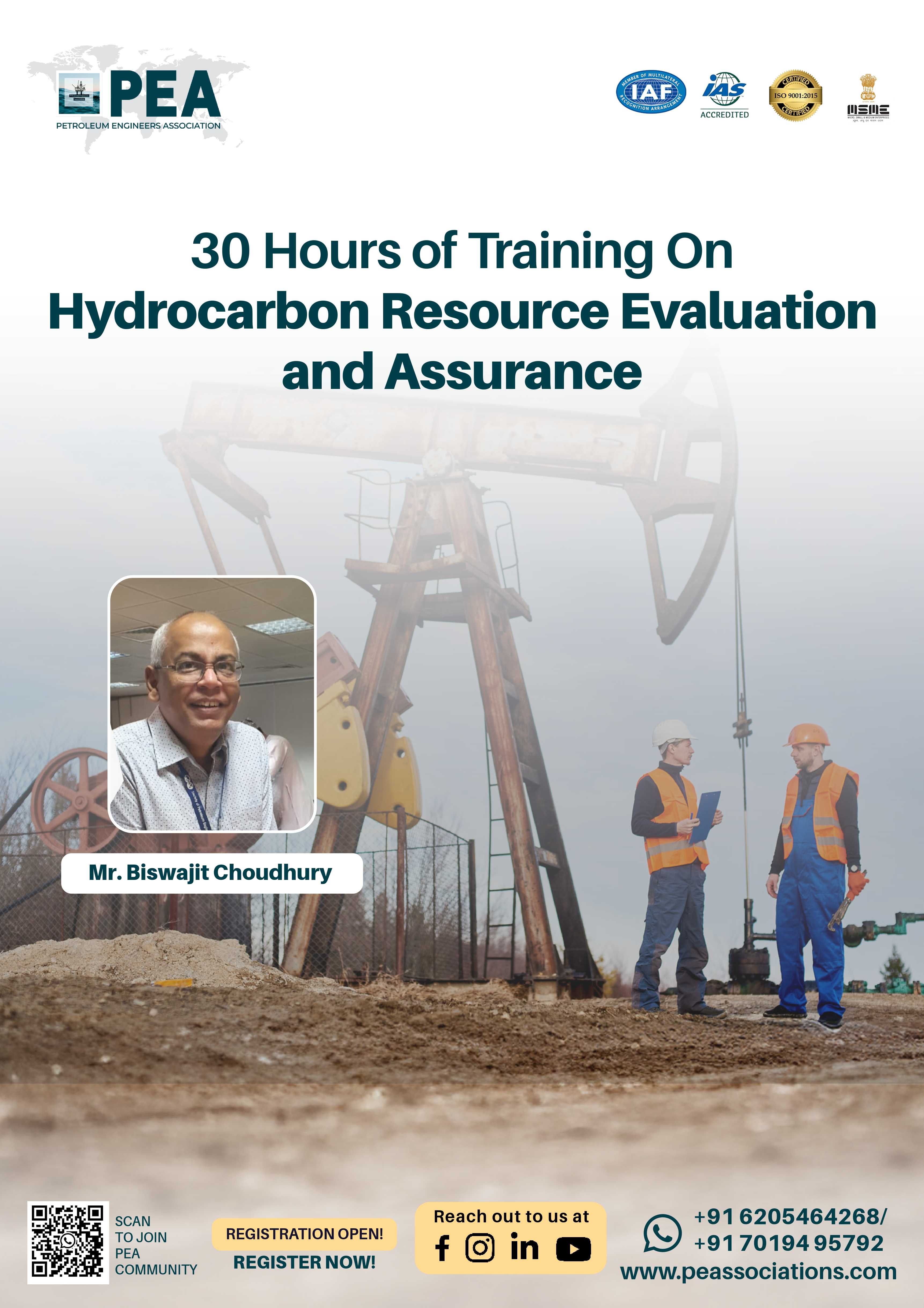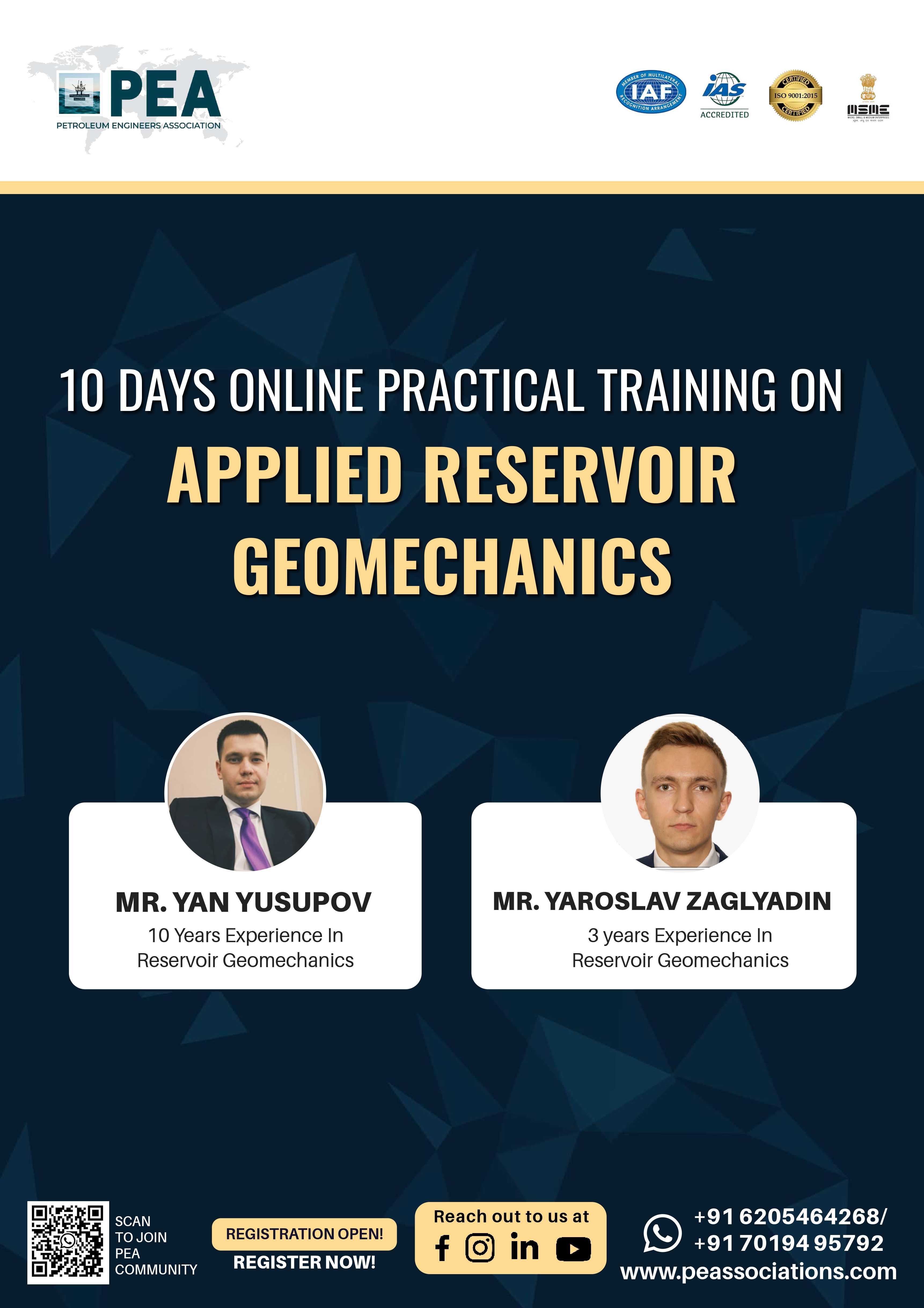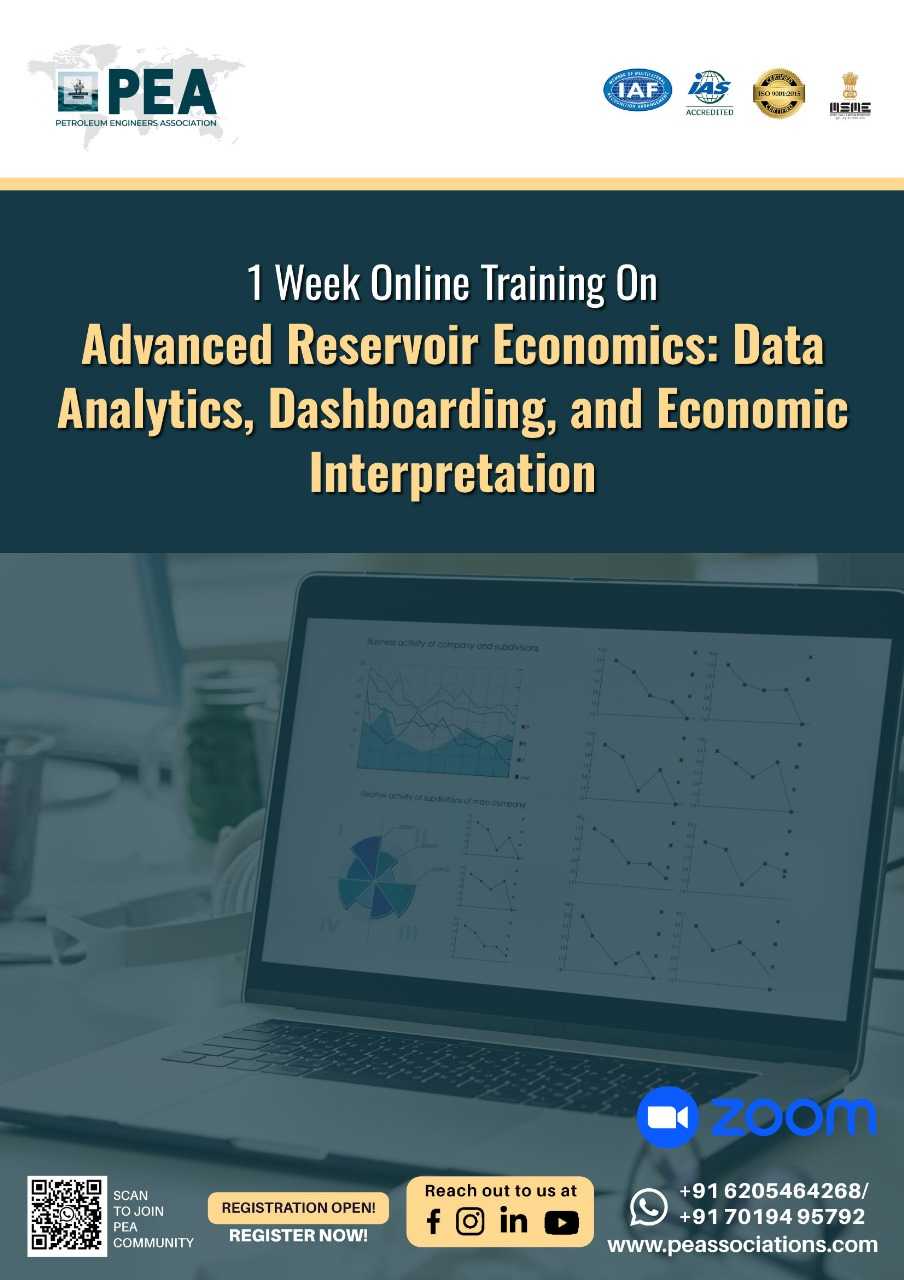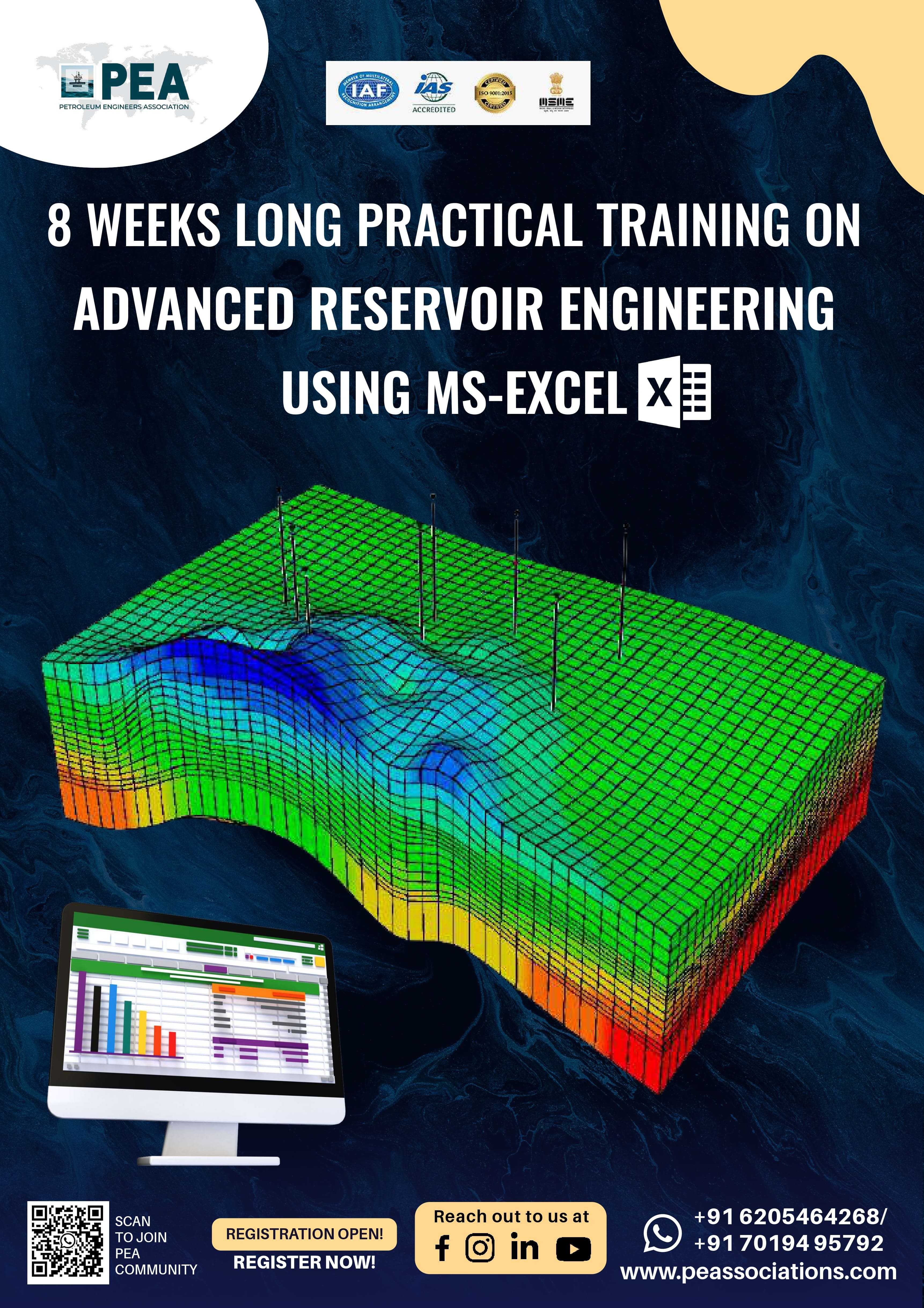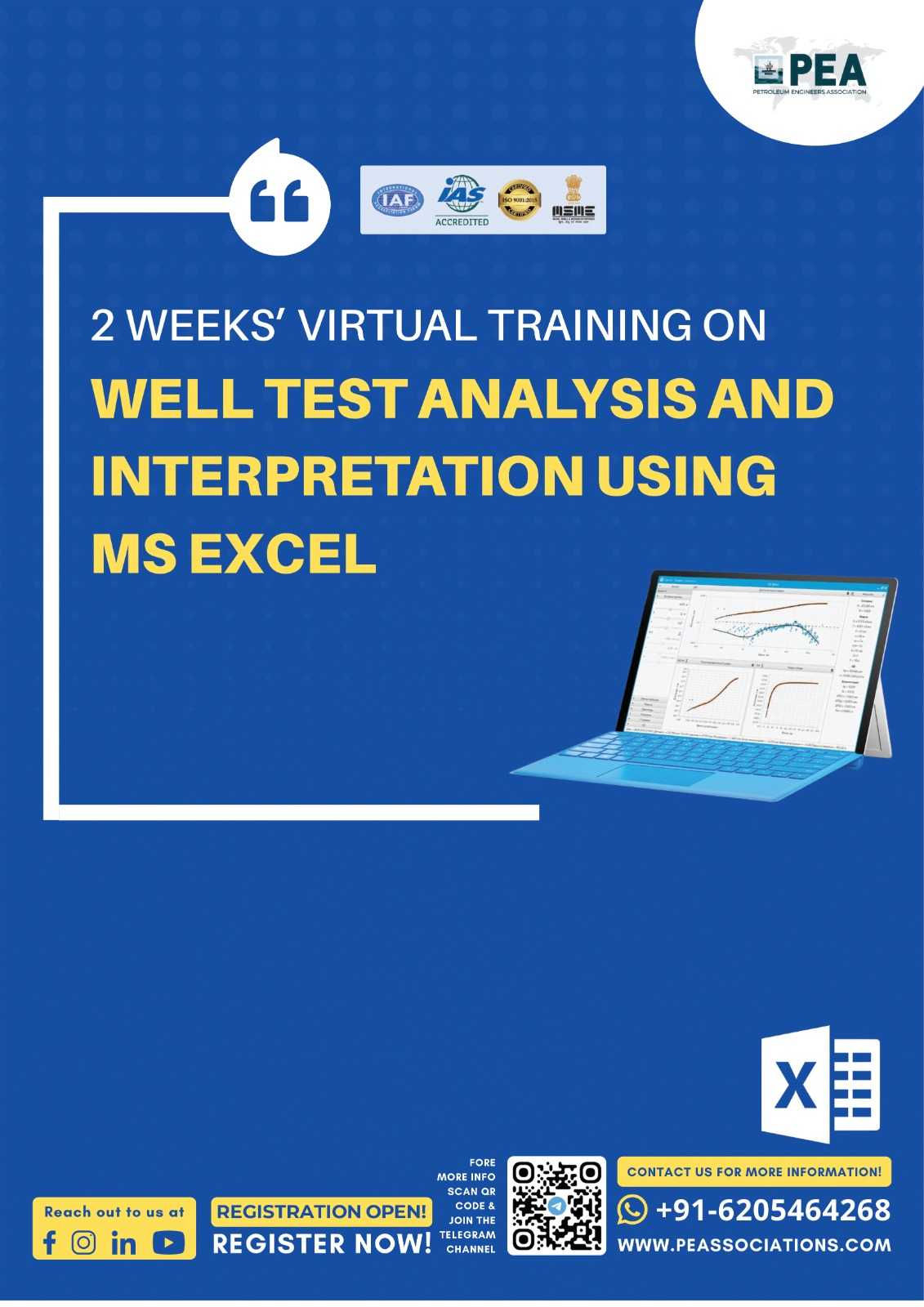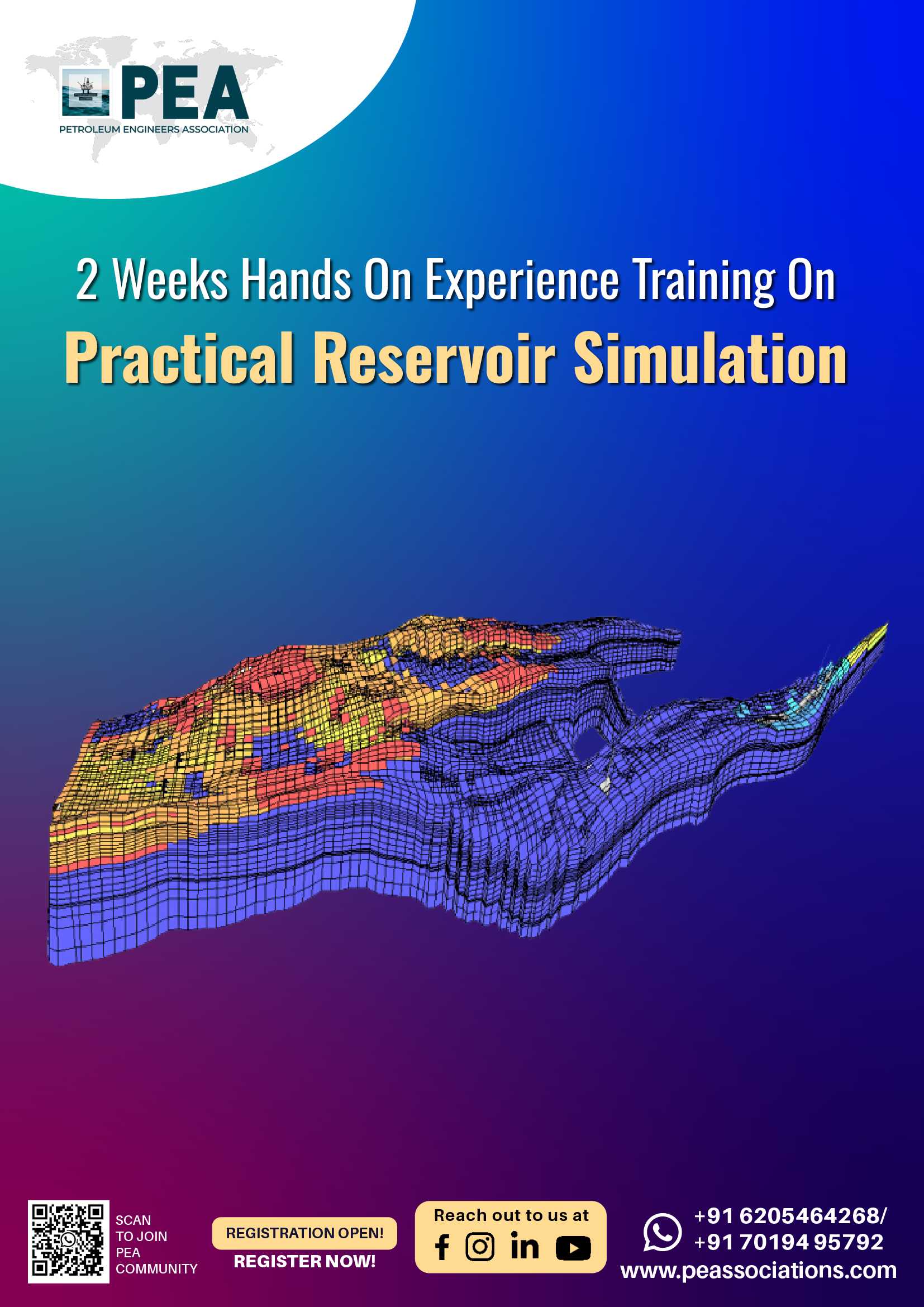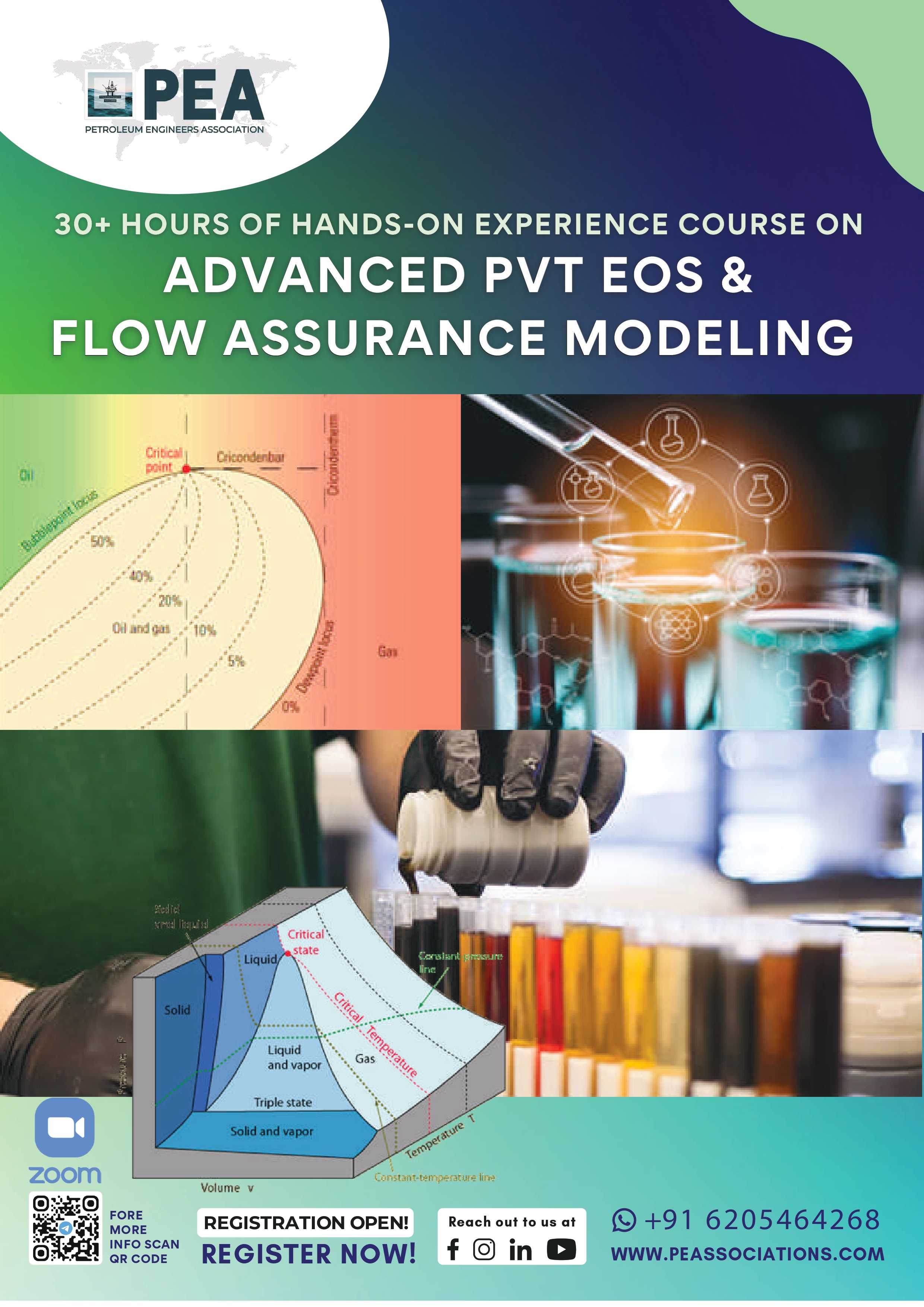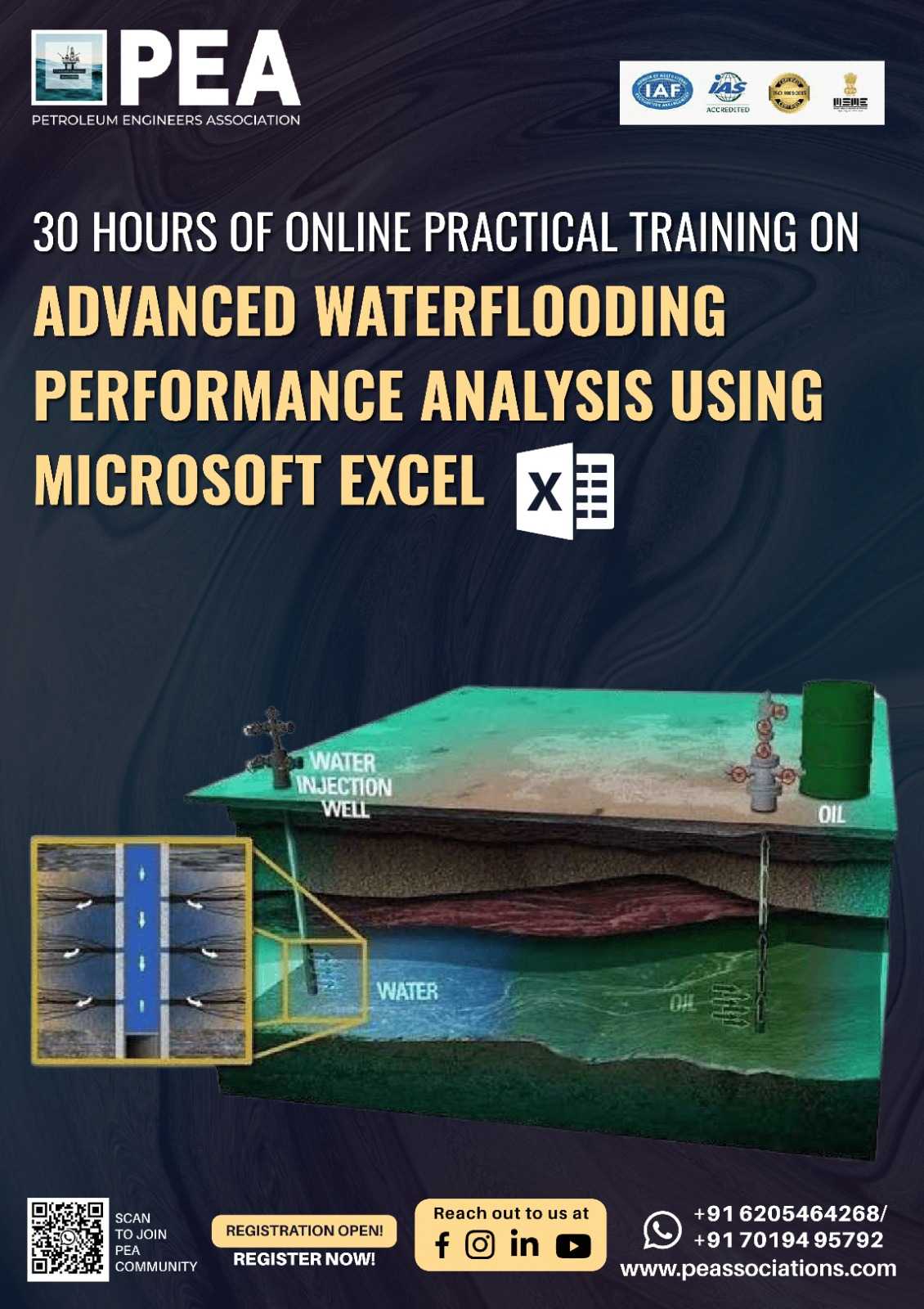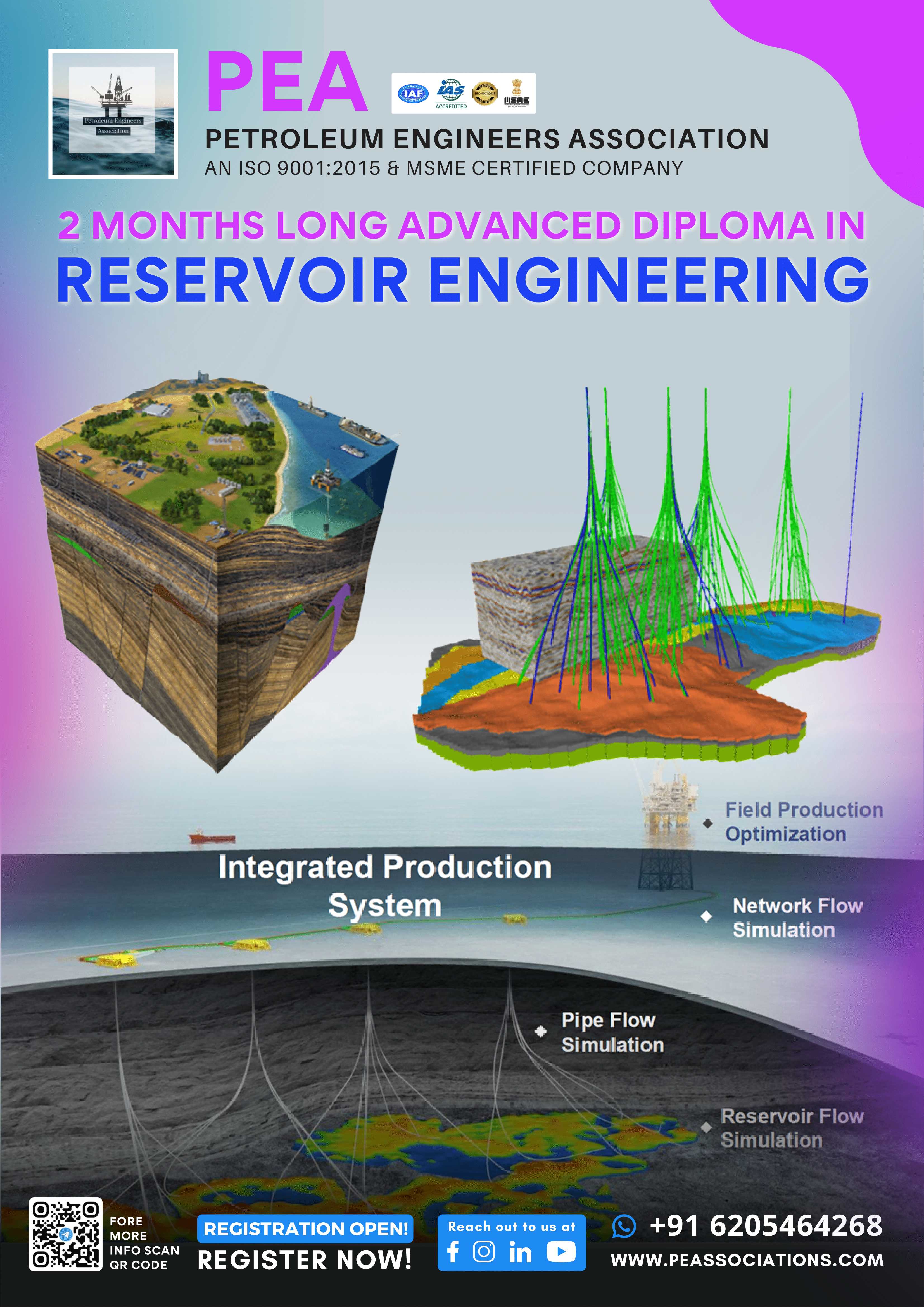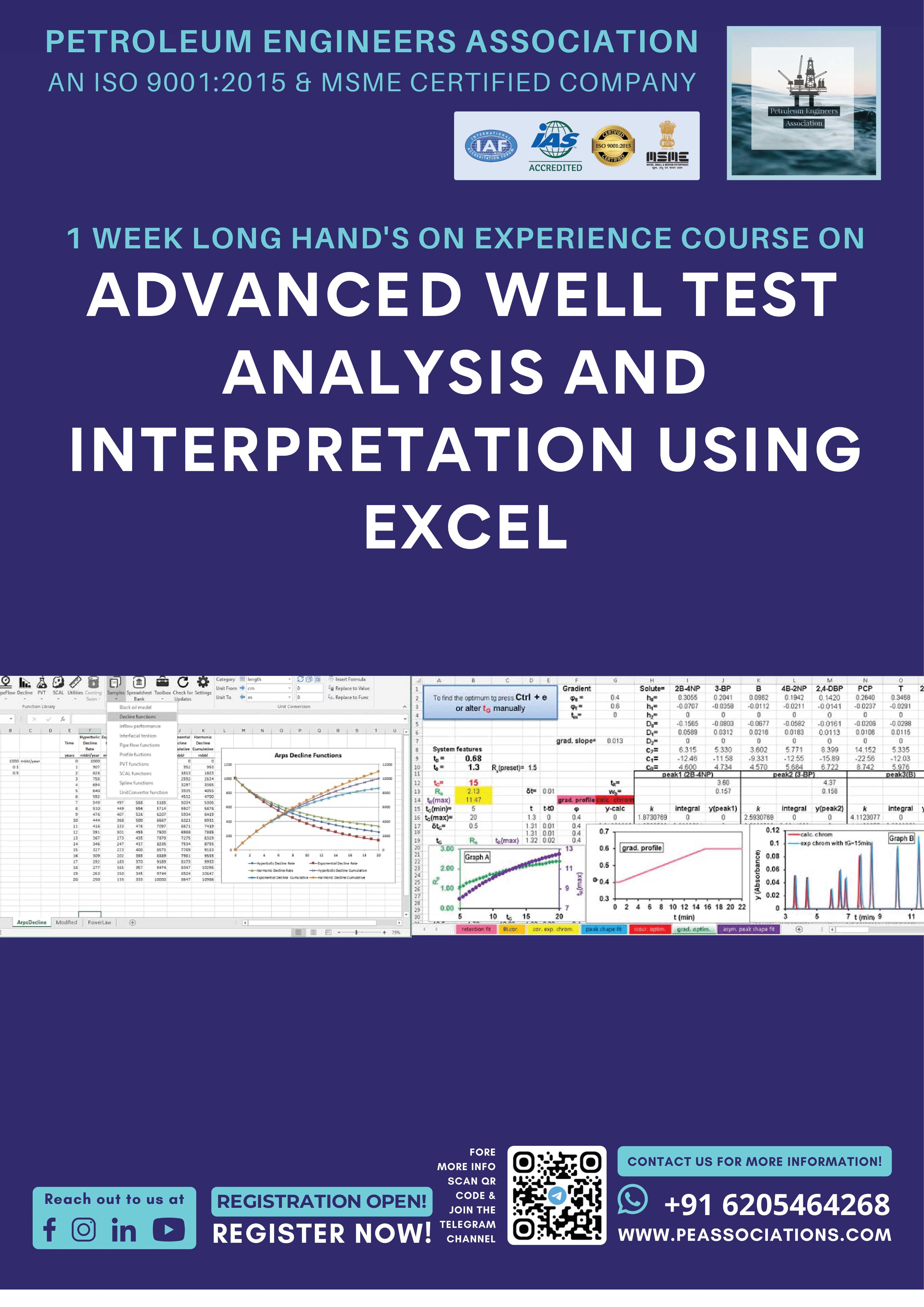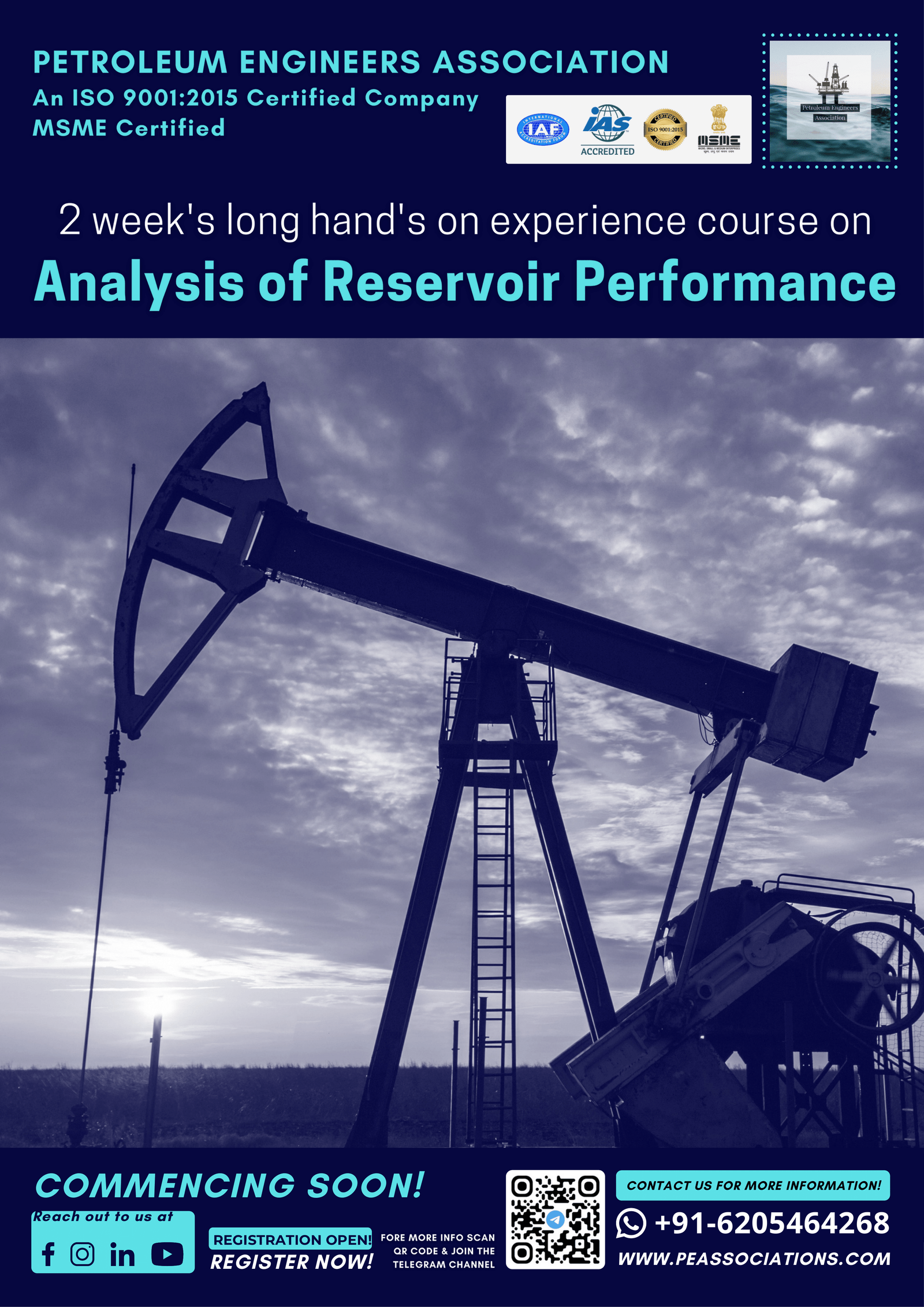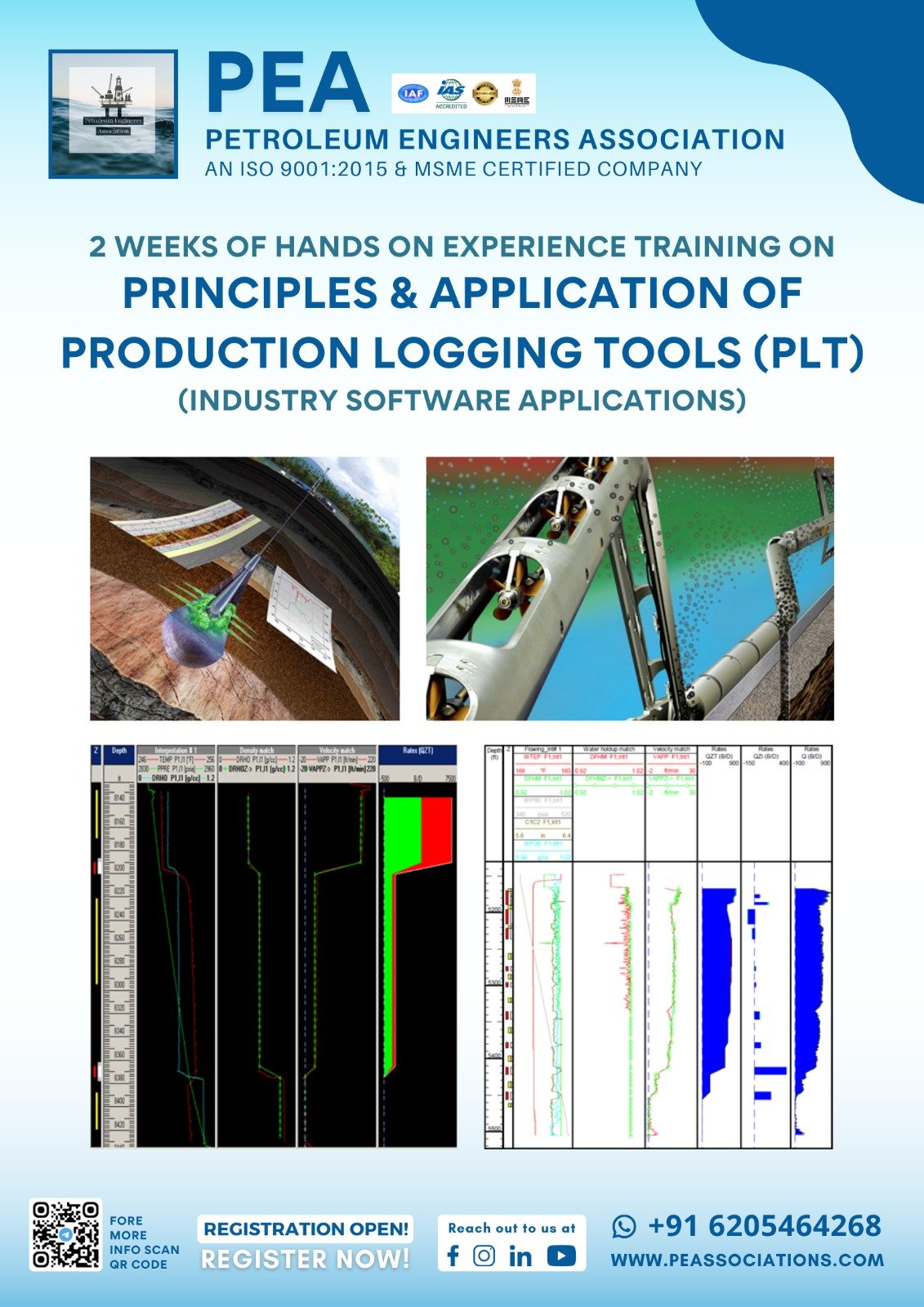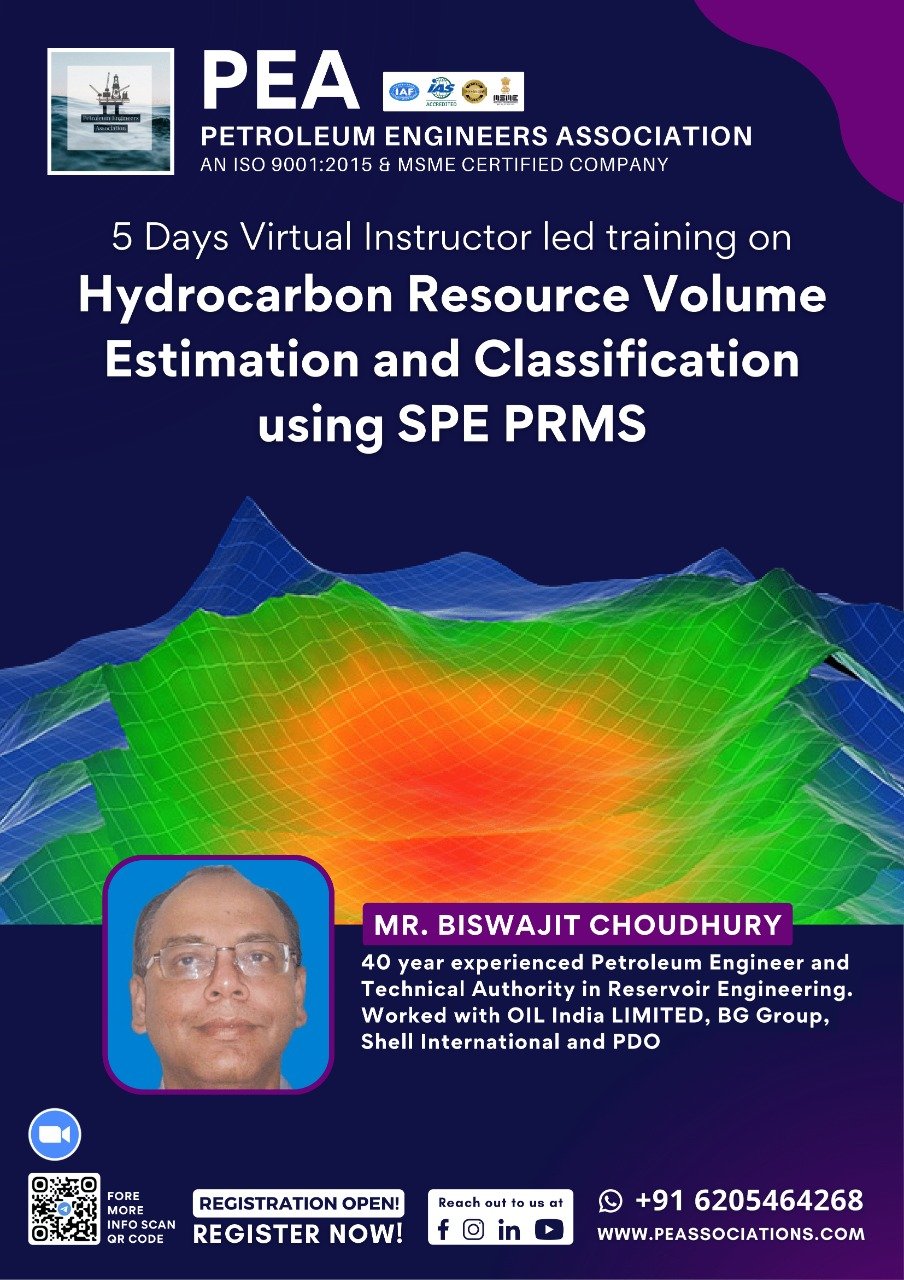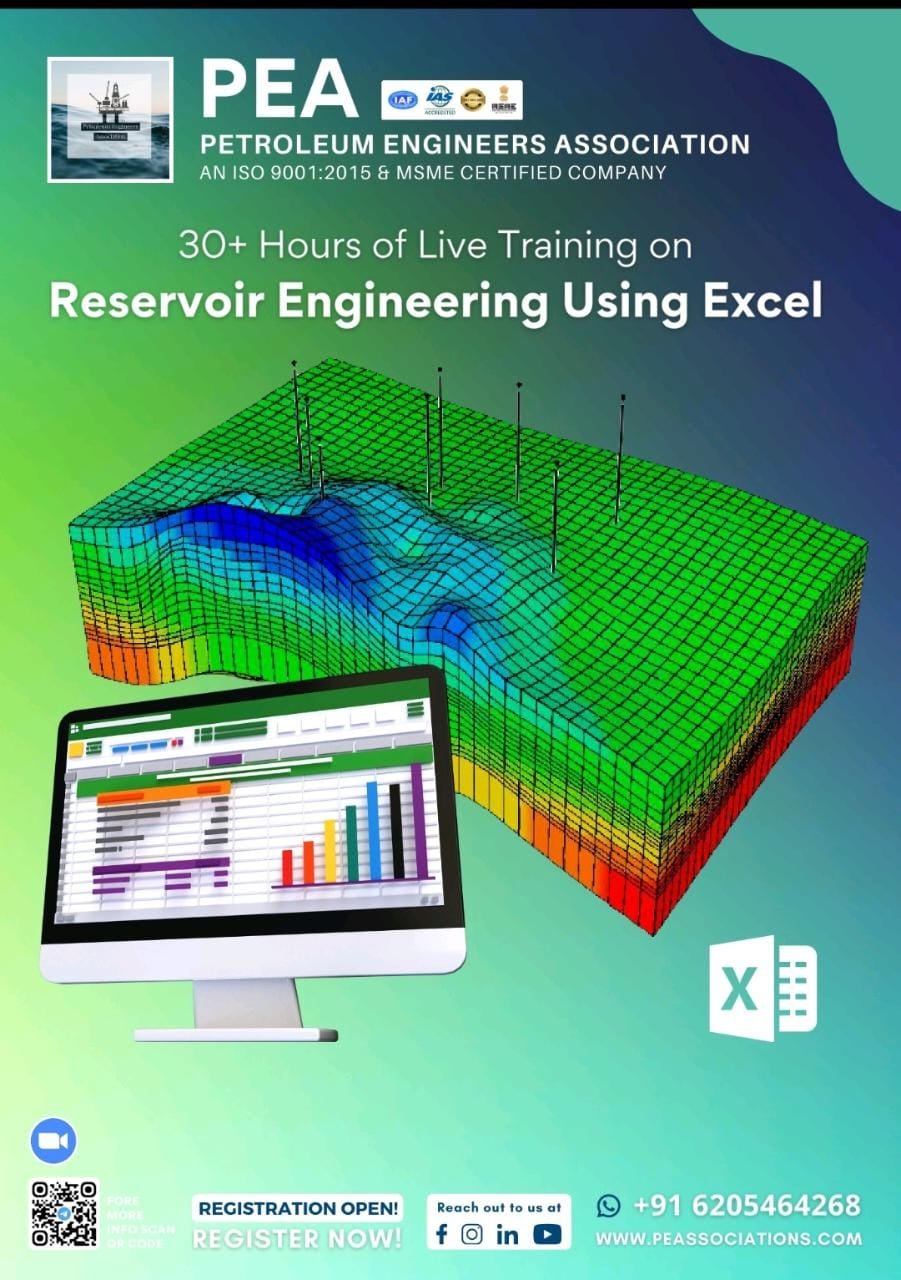Boost your team's skills and your budget! Enjoy group discounts for collaborative learning. Send an inquiry to info@peassociations.com.
Reservoir Characterization Using Core Analysis (RCAL & SCAL)
This course provides attendees with
detailed instruction on basic Petrophysics, measurement methods, and the
controls over porosity, permeability, fluids, wettability, and relative
permeability data analysis. The attendees understand the source of petrophysical
data errors through hands-on correlation of a sample log; a core dataset is
analyzed and the saturation-height model is created. The basics of rock based
Petrophysics, including routine core analysis methods and special core analysis
techniques will be presented. The course
will focus on the factors that control porosity, permeability, fluids,
wettability, capillary pressure, and relative permeability data analysis.
Description
This training course is a comprehensive course to principles and applications of core special core analysis (SCAL) measurements and data interpretation. Core data represents an integral part of reservoir description and characterization. Understanding different rock properties of the reservoir is important for assigning the optimum field development plan. This course provides a with detailed instruction on basic Petrophysics, coring operations, core measurement methods, and the controls over porosity, permeability, fluids, wettability, capillary pressure, and relative permeability data analysis. Additionally, the measurements of the electrical properties will be discussed. Meanwhile, the role of relative permeability and capillary pressure data in reservoir simulation models will be discussed in details. Finally, it will highlight the applications of core data analysis, interpretation, and integration with other formation evaluation data.
Core analysis is a vital process in reservoir evaluation, providing essential data for reservoir characterization and development planning. This course focuses on Routine Core Analysis (RCA) and Special Core Analysis (SCAL), equipping professionals with the techniques required for accurate measurements of porosity, permeability, fluid saturation, and wettability. By understanding and applying RCA and SCAL, attendees will enhance their ability to make informed decisions regarding reservoir productivity and management.
· Apply and use the results from routine core analysis (RCA) and Special Core Analysis (SCAL) for static and dynamic model building.
· Utilize high pressure mercury injection capillary pressure to determine pore geometry and the foundation of petrophysical rock typing.
· Use pore geometry to determine core based petrophysical rock types and creating core-log saturation height models.
· Integrate relative permeability, wettability and capillary pressure data.
This course uses a blend of interactive lectures, practical exercises, and real-world case studies to reinforce learning. Participants will engage in hands-on sessions to practice core analysis techniques, enhancing their confidence in applying these skills in actual reservoir studies.
By investing in Applied Core Analysis (RCA & SCAL) training, your organization will benefit from improved reservoir evaluations, informed decision-making, and optimized development strategies. Professionals trained in RCA and SCAL contribute valuable insights that can enhance productivity, reduce uncertainties, and maximize reservoir performance.
Attending this course will empower participants with specialized knowledge and practical skills in core analysis, broadening their expertise in reservoir engineering and boosting their professional capabilities. By mastering RCA and SCAL techniques, attendees will be well-positioned to contribute more effectively to reservoir characterization projects and career advancement opportunities.
Day 1:
Objectives of core analysis and coring methods
Core analysis flowchart
Coring operations
Coring laboratory workflow
Screening, sampling and preparation
Petrography and mineralogical characterization
Porosity measurement techniques
Permeability measurement techniques
Influence of stress on basic rock properties
Conventional core analysis
Day 2:
Preliminary characterization
Sedimentology and petrographical analyses
Thin section petrography
Rock typing and reservoir zonation
Fundamentals of core-log integration
Geology and pore geometry
Core total and effective porosity
Core permeability
Example videos
Applied RCA data analysis
Core plug selection (sample quality control issues)
Review key learning points
Day 3:
Petrophysical rock types using core analysis
Petrophysical Rock Types
Introduction to Applied Capillary Pressure
Pore throat characterization methods
Pore throat systems combined with wettability and initial water saturation
High pressure mercury injection capillary pressure and practical interpretation methods
Day 4:
Capillary pressure measurements
Normalization and averaging of capillary pressure data
Core-log integration
Predicting hydrocarbon contacts and free water level
Day 5:
Reservoir saturations (hydrocarbon and water) using capillary pressure and core-log integration.
Drainage and imbibition processes
Day 6:
Relative permeability measurements
Normalization and averaging of capillary pressure data
Saturation height modelling
Day 7:
Wettability measurements
Wettability effects
Day 8:
Electrical Rock Properties (what is m and n)
Resistivity index and resistivity factor measurements
Day 9:
Rock compressibility measurements
Influence of compressibility on core measurements
Day 10:
Complete project data analysis
Role of core data in reservoir simulation
Preparation data for simulation models
On successful completion of this training course, PEA Certificate will be awarded to the delegates

Hesham Mokhtar is a Reservoir Engineering Team Leader at General Petroleum Company (GPC) in Egypt. He has extensive experience in reservoir management, characterization, and production optimization. He is skilled in using various software for reservoir simulation and analysis. He has also delivered training courses on waterflooding, PVT analysis, reservoir simulation, and more.
- 14+ years of Petroleum Engineering expertise delivering technical solutions to E&P portfolios.
- Expert in reservoir evaluations, log interpretations, and hydrocarbon estimations using tools like Techlog, Volumetric, DCA, MBE, OFM, and KAPPA
- Analyzes production data, material balance, RFT/MDT data, and pressure transients for reservoir performance and optimization.

